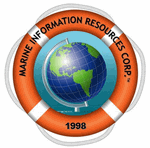Session
4
Start Date
7-12-2017 3:15 PM
End Date
7-12-2017 4:00 PM
Description
Accurate nearshore and coastal wave forecasts are essential for the protection of life and property as well as enhancing the economy through safe and efficient commercial activities. Modeling the nearshore environment has remained both computationally intensive and challenging due to the strong interaction of waves with the ocean bottom in shallow water environments. Here we develop a new wave system approach for nearshore wave modeling that addresses these issues. Wave systems result from specific wind forcing events on the ocean surface. This approach extends earlier work on wave system partitioning and tracking to assimilate coastal buoy observations into model output at the wave system level and model wave system transition through the shallow water environment. The resulting model is affectionately called Nessie.
Extended Abstract - Improved Coastal and NEarshore Wave Forecasting
Hanson_Waves_Submitted.pdf (958 kB)
Paper - Improved Coastal and Nearshore Wave Forecasting
Included in
Session 4 Presentation - Improved Coastal and Nearshore Wave Forecasting
Accurate nearshore and coastal wave forecasts are essential for the protection of life and property as well as enhancing the economy through safe and efficient commercial activities. Modeling the nearshore environment has remained both computationally intensive and challenging due to the strong interaction of waves with the ocean bottom in shallow water environments. Here we develop a new wave system approach for nearshore wave modeling that addresses these issues. Wave systems result from specific wind forcing events on the ocean surface. This approach extends earlier work on wave system partitioning and tracking to assimilate coastal buoy observations into model output at the wave system level and model wave system transition through the shallow water environment. The resulting model is affectionately called Nessie.



